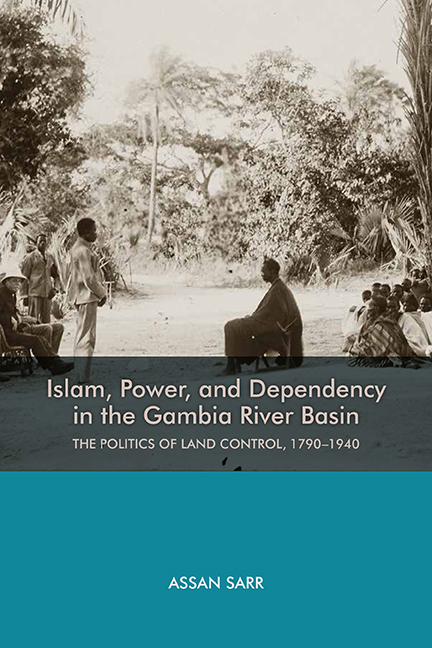Book contents
5 - Spiritual Persistence through Change
from Part 2 - The End of the Old Order
Published online by Cambridge University Press: 26 April 2018
Summary
Marabouts and Forest-Dwelling Spirits
In the 1820s, Captain Alexander Findlay, Commander of the British force in Gambia, described marabouts as “pests to society … all of whom were living upon the public.” Findlay's account does not tell us how marabouts were “pests to society.” But evidence suggests that the marabouts were dependent on a host of people whom they used in turn to increase their wealth and standing in society. Marabouts had influence in society because people believed in the magic powers certain holy men such as marabouts claimed to possess. Their spiritual powers were believed to be superior to those of other members of the community. These marabouts used their power to convert “spirit lands” into human habitation or farmlands, which they claimed to own. In this way, marabouts succeeded in exploiting this belief in spirits to regulate access and control of land and people.
The marabouts Captain Findlay described would become some of the region's most important peanut growers and landowners. Their religious authority and privileged access to land allowed them to keep a relatively large number of dependents as wives, children, students, clients, and slaves. Even though Findlay's remarks did not capture the changing ideas about forest-dwelling spirits and how those changes facilitated the expansion of peanut farming, a few years after he wrote, cash-crop farming expanded across the entire region.
While materialist interpretations of the growth of cash-crop farming have contributed immensely to our understanding of the local agricultural history of the lower Gambia region, it is time for historians to look beyond materiality. In the Gambia region, the gradual weakening of the belief in spiritual control of the land was vital for the growth of commercial agriculture based on cash crops. As Islam expanded, economic transformations followed. It allowed marabouts to conquer spirits and render more land available. From the midnineteenth century, Muslim clerics led the conquest of the “evil” forests and later created settlements on those lands. To the people of this region, large tracts of uncleared forest did not imply, necessarily, an abundance of available land.
- Type
- Chapter
- Information
- Islam, Power, and Dependency in the Gambia River BasinThe Politics of Land Control, 1790–1940, pp. 137 - 161Publisher: Boydell & BrewerPrint publication year: 2016

